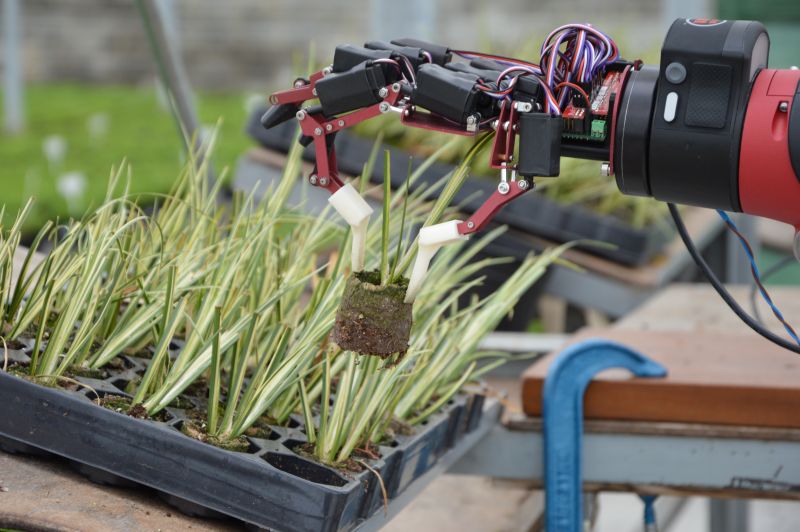
A lack of knowledge is holding many farmers back from investing in new agricultural technology, according to a new survey by NFU Mutual.
Lack of access to finance was the second highest reason limiting respondents (30%), followed by uncertainty about the future (17%) and supply chain difficulties (7%).
It comes hot on the heels of the government’s latest round of grants to help farmers in England purchase high-tech machinery to improve productivity and the environment.
Technology is set to revolutionise farming, increase productivity and help move UK agriculture towards its goal of being carbon neutral by 2040.
But NFU Mutual's survey revealed that just under half of farmers responding (47%) would consider using autonomous vehicles, while just 14% said they were planning to invest in agri-tech this year.
The survey was conducted to accompany the rural insurer’s 2022 Agri-tech Report, published on Monday.
Charlie Yorke, farm insurance specialist at NFU Mutual said: “While many farmers are open to using technology, lack of understanding of new technologies and the investment they entail, means they are hesitating to take the plunge.
"Understandably, there’s a real fear amongst farmers that they could make the wrong tech-choice for their farm and end up with an expensive system that becomes outdated quickly.
“To make the right investment, farmers need to work closely with system suppliers, leading agricultural colleges, and other farmers to make sure they make the best decisions for their business.
“Holding back runs the risk of falling behind as global competition increases and UK farming support changes.”
Covering the latest agri-tech developments from poultry house automation to robotic tractors, NFU Mutual's report aims to help farmers explore opportunities for the future.
Advice for those contemplating agri-tech investment include reviewing long-term strategies and then identifying how technology and the use of detailed data could help achieve goals.
The report says that farmers should also explore technology systems which integrate not only with their farm’s activities but also their supply chain.
Working with other farms is also useful, it adds, as cooperation can help achieve economies of scale both in the use of new technology and the adoption of farmer-friendly supply chains.
Ali Capper, an agri-tech pioneer at Stocks Farm on the Herefordshire and Worcestershire border, highlighted the environmental benefits of using innovation.
“We must all have the climate change agenda at the heart of what we do and the decisions we make," she said.
“The good news is that many agri-tech innovations will help us to be kinder to the farmed environment as well as more efficient and profitable.
“To achieve long-term sustainability and reduce fossil fuel use, at Stocks Farm we have adopted a whole-of-farm approach to growing, pest control, and picking automation.”
